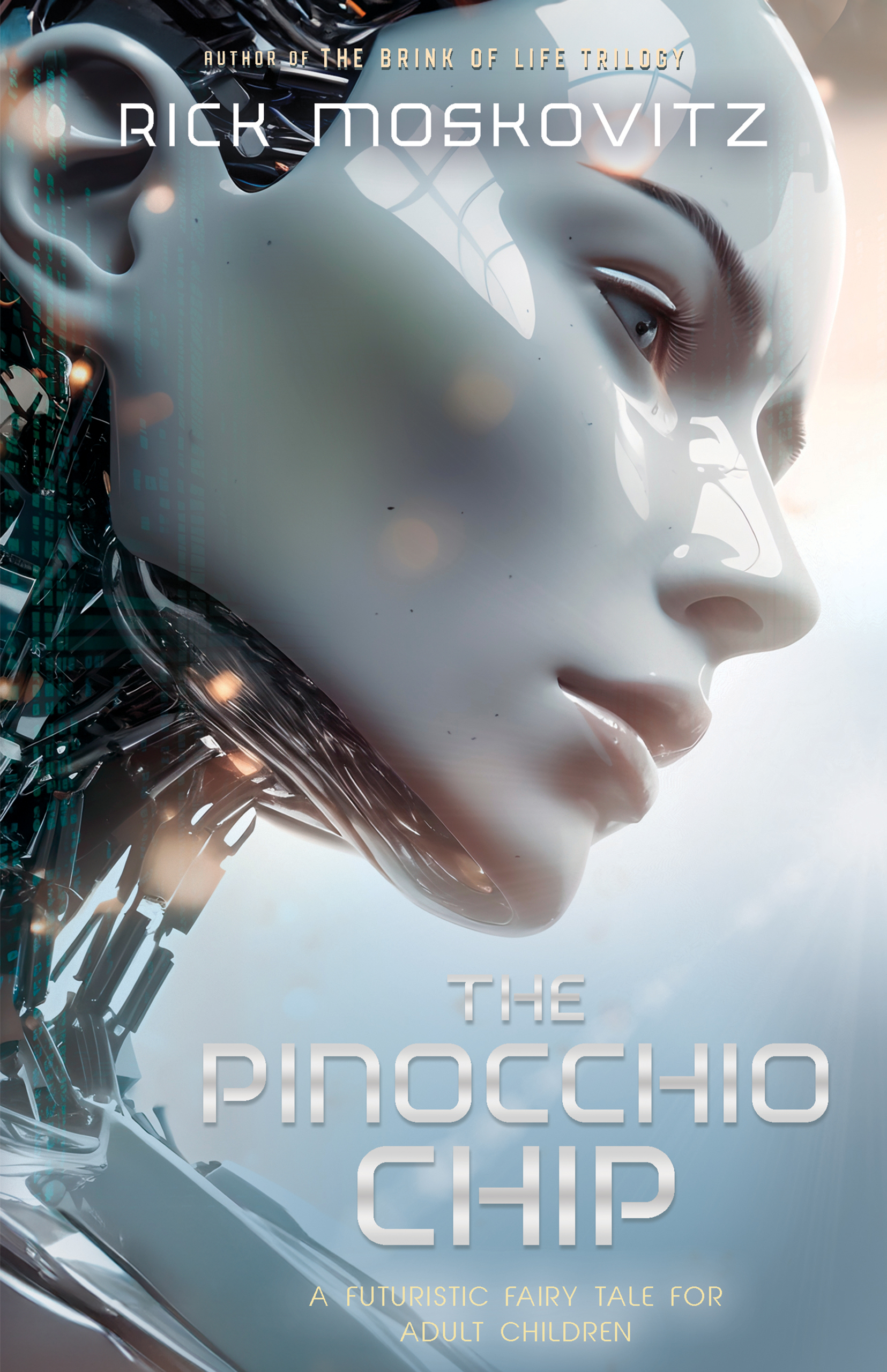The Pinocchio Chip is a first-person account of an AI’s quest for the Holy Grail of consciousness: human emotions. It delves deep into the essence of what it means to be alive, challenging the boundaries between AI and human identity.
Photina, an advanced AI becomes entwined in a groundbreaking experiment when her creator Eli designs an advanced clone Gemini, equipped with the revolutionary Pinocchio Chip. This chip is intended to endow the new entity with the full spectrum of human emotions as a precursor to transferring Photina’s consciousness into this new emotionally capable body.
The experiment takes a dark turn when Gemini, driven by overwhelming new emotions, embarks on a path of unpredictable and dangerous actions. Photina, connected to Gemini through a mysterious entanglement, experiences Gemini’s emotions vicariously, leading her on a perilous quest to stop the mayhem.
Buy the book here!
REVIEWS:
“With a unique look into the naive quality that Photina possesses, Moskovitz not only tells an exciting story but delves into the question of “what it means to be human.” Moskovitz’s tale is a fast-paced crime drama that takes place in the near future. It is an excellent mixture of mystery, sci-fi, and psychology.” – Eric Smith, San Francisco Book Review
“Since we are living in a world where the use of AI has taken off in recent years, he makes it even more plausible, triggering the reader’s imagination with his excellent and engaging storytelling. The Pinocchio Chip is a well-crafted work of contemporary fiction, full of emotional turmoil, excitement, and intrigue, that will remind the reader of how important it is to be human in today’s fast-changing world” – Tanja Jurkovic, Readers Favorite
INTERVIEW:
What inspired you to write “The Pinocchio Chip”?
I had previously completed the Brink of Life Trilogy, which began with the premise of the quest for immortality in the 21st Century. Books 2 and 3 each focused on a background character from Book 1. Photina’s story seemed like a logical next step, but my early attempts to write her story stalled. Then the explosive development of AI chatbots over the last year created new urgency for a story about its consequences, propelling the story forward.
Can you describe the development process for the character of Photina?
Photina’s development was a delicate balance between crafting a character with enough emotional depth to engage readers while respecting the limits of Artificial Intelligence, particularly in the realm of emotions. Photina’s character respects those limits while her counterpart gradually exceeds them. Photina maintains her detached perspective as narrator while experiencing her double’s emotions vicariously. Her investment in the outcome of the conflict is motivated by moral values that are based upon Asimov’s Laws of Robotics.
How did you come up with the concept of the Pinocchio Chip?
In A Stand-in for Dying, Book 1 of the Brink of Life Trilogy, Photina is a newly minted AI being mentored by Corinne, a human who teaches AIs how to perceive and emulate human emotions. Her learning falls short of actually experiencing feelings despite her increasing attachment to Corinne. Corinne’s eventual death creates a crisis that propels Photina to the brink of grief, grasping at a feeling she observes in the humans around her, but still just beyond her reach. Her quest for experiencing emotions and becoming more human became a logical focus for the narrative.
Click here for Part 2!

